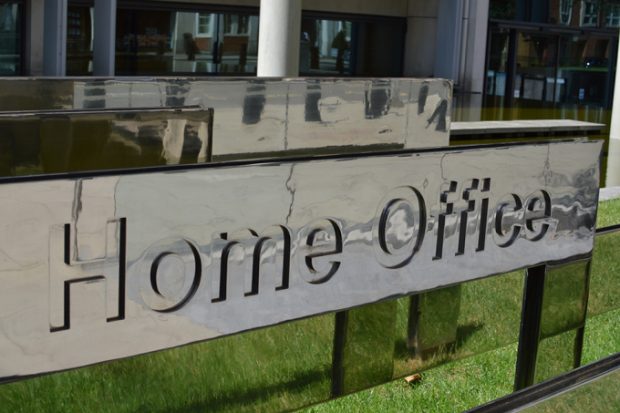
Today's Home Office stories relate to further small boat crossings, visa fees and health surcharges and calls for a Scotland-specific visa system.
Small boat incidents
The Mail, Telegraph and Daily Star report on three small boat incidents that occurred off the Kent coast over the weekend.
The coverage notes that 42 migrants were rescued from three small boats, two of which were intercepted on Sunday and one on Saturday. During Sunday's incident, eight children were rescued from the vessel.
A Home Office spokesperson said:
Anyone crossing the Channel in a small boat is taking a huge risk with their life and the lives of their children.
Since the Home Secretary declared a major incident in December we have agreed a joint action plan with France and increased activity out of the Joint Coordination and Information Centre in Calais.
It is an established principle that those in need of protection should claim asylum in the first safe country they reach.
Visa fees and health surcharges
The Guardian reports that hundreds of overseas doctors are considering quitting the NHS in protest at being charged thousands of pounds a year for visas and healthcare in order to work in the UK.
The article also notes that more than 500 doctors from outside the EU have voiced their concerns in testimonies given to EveryDoctor, a campaigning organisation run by medics to improve how the profession is treated.
A Home Office spokesperson said:
We fully recognise the contribution that international healthcare professionals make to the UK. That’s why we removed doctors and nurses from the Tier 2 visa cap, which has resulted in a 54% increase in the number of skilled workers in the health and social work sector.
However, it is only right that they contribute to the running of the NHS, as do other providers of essential public services such as teachers.
Income from fees charged for immigration and nationality applications play a vital role in our ability to run a sustainable immigration and nationality system and minimize the burden on the taxpayer. The Home Office reviews fees on a yearly basis.
Scotland work visa system
The Financial Times reports on comments by Ben Macpherson, the Scottish minister for Europe and migration, noting that Scotland should have its own visa regime after Brexit that allows EU nationals to easily come and work in the country.
The article notes that the minister said Scotland should be able to “set work visa criteria and administer applications with border control remaining the preserve of the British Government”.
A Home Office spokesperson said:
The new immigration system, operating from 2021, is designed to help drive up wages and productivity across the UK economy, including in Scotland, and will support businesses, communities and our public services.
One of its strengths is its flexibility through a skills-based approach, allowing us to attract the talented workers we need but also delivering on the referendum result following the end of free movement.
Whilst immigration remains a matter for the whole of the UK, we are making every effort to understand the specific needs of Scotland, which is why we will continue to extensively engage with business, other stakeholders and the public over the next 12 months.
